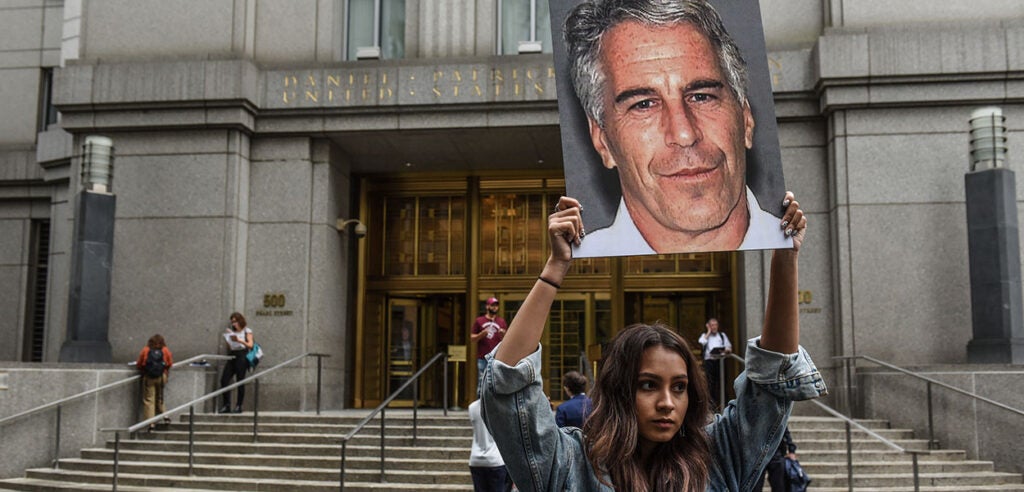Children are not property to be exploited; they are gifts from God—and what do you do with a gift? You cherish it, grow it, and protect it. Yet, in a world marred by moral decay and power imbalances, the most vulnerable among us, children, often fall prey to the darkest desires of influential figures.
The Jeffrey Epstein case, among others, lays bare a troubling pattern: a fascination among certain powerful individuals for underage boys and girls. This is not a new phenomenon; history is replete with instances where those in positions of power, be they priests or potentates, have succumbed to this heinous proclivity.
But why? The answer perhaps lies in the corrupting nature of power itself. As Lord Acton famously said, “Power tends to corrupt, and absolute power corrupts absolutely.”
In the case of the exploitation of children, power becomes a vehicle not just for corruption but for the perversion of the most sacred trust.
Let us consider priests, traditionally seen as moral guides and protectors of the flock. When they succumb to such vile desires, it is not only a betrayal of their sacred duty but an affront to the very tenets of faith and morality they are meant to uphold.
Similarly, when influential figures like Epstein and his band of unknown powerful figures, most of whom are men, engage in such acts, it reflects a gross abuse of power and privilege, a twisted assertion of dominance over the most defenseless.
This reprehensible behavior is not just a violation of law but a moral abomination that should be met with the severest of punishments. In this context, the call for the death penalty for child predators might seem a fitting retribution.
The argument is straightforward: Such an act is so fundamentally against the natural order, so damaging to the very fabric of society, and so irreparably harmful to the victims that only the most extreme form of punishment would suffice.
As we grapple with these dark realities, we must remember that the true measure of a society is found in how it treats its most vulnerable. In safeguarding our children, in nurturing their growth and in fiercely defending their innocence, we uphold not just a legal duty but a moral imperative.
For, in the words of Charles Dickens: “In the little world in which children have their existence, there is nothing so finely perceived and so finely felt as injustice.”
Children, the purest embodiment of innocence, should be the cherished treasures of our society, protected from the snares of those who would do them harm. However, as cases like Epstein’s tragically illustrate, often the mighty have the most depraved of desires, exploiting the defenseless and leaving an indelible scar on the tapestry of humanity.
Why do such abominations occur, especially among the powerful? The intoxicating nature of power distorts the moral compass, leading some to exploit the innocent in a perverse display of control. This is not only a breach of legal boundaries but, more critically, a profound moral failure.
As Edmund Burke wisely noted, “The only thing necessary for the triumph of evil is for good men to do nothing.” Thus, it becomes imperative for society to act decisively.
The psychological and societal impact of these crimes is catastrophic. The betrayal of a child’s trust can fracture the foundation of their world, often leaving lifelong emotional and mental scars. Beyond the individual tragedy, such violations erode public trust in institutions and figures of authority, undermining the social fabric that binds communities.
In facing this grim reality, our justice system must be unyielding in its pursuit of those who prey on children. While some advocate the ultimate punishment, the death penalty, we must tread cautiously.
The pursuit of justice must be balanced with the principles of fairness and the potential for rehabilitation. As Alexander Pope eloquently put it, “To err is human, to forgive divine.” Our approach must reflect a balance between the gravity of the crime and the principles of a just and humane society.
The solution lies not only in punishment but in prevention and education. It requires creating environments where children are informed, empowered, and encouraged to speak out. We must cultivate a culture that prioritizes the welfare and protection of children above all else.
The exploitation of children by the powerful is a stark reminder of the moral and ethical failings that can permeate any society. Our response must be resolute, not only in punishing the guilty but in safeguarding the innocence of the young.
Through vigilant protection, education, and moral guidance, we can strive to build a world where the innocence of childhood is not just a fleeting moment but a lasting legacy treasured and protected by all.
COPYRIGHT 2024 CREATORS.COM
The Daily Signal publishes a variety of perspectives. Nothing written here is to be construed as representing the views of The Heritage Foundation.
Have an opinion about this article? To sound off, please email letters@DailySignal.com and we’ll consider publishing your edited remarks in our regular “We Hear You” feature. Remember to include the URL or headline of the article plus your name and town and/or state.
